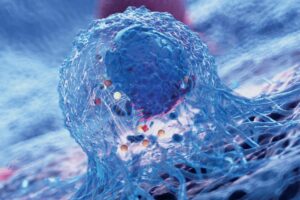What is already known
Several factors — including genetics, health status, diet and medications — influence the composition of the gut microbiota. However, much of the microbiota variability between individuals remains unexplained. Sexual practices may be one yet-unknown factor, as men who have sex with men tend to have a distinctive gut microbiota.
What this research adds
Researchers analyzed the gut microbiotas of men who have sex with men and found that they resemble the microbiotas of non-Westernized populations, with increased levels of Segatella copri and other Prevotellaceae bacteria. A more diverse and non-Westernized gut microbiota are associated with sexual practices that increase the risk of acquiring sexually transmitted infections, such as practicing oral sex, having more than three sexual partners and not using condoms.
Conclusions
The findings suggest that specific sexual activities are associated with gut microbiota alterations in men who have sex with men.
Several factors — including genetics, health status, diet and medications — influence the composition of the gut microbiota. However, much of the microbiota variability between individuals remains unexplained. Now, researchers have found that the gut microbiotas of men who have sex with men resemble those of non-Westernized populations.
The findings, published in Cell Reports Medicine, suggest that specific sexual activities are associated with microbiota alterations, at least in men who have sex with men.
Scientists suspect that sexual practices may be a yet-unknown factor that shapes the gut microbiota, as men who have sex with men tend to have a distinctive gut microbiota with an increased abundance of Segatella/Prevotella species, which have been linked to inflammatory diseases and insulin resistance in Westernized populations. However, high levels of Segatella/Prevotella have also been linked to health-promoting diets and they’re common in the microbiotas of non-Westernized healthy individuals.
To shed light on the role of sexual practices in shaping the human gut microbiota, researchers led by Kun Huang at the Helmholtz Centre for Infection Research in Braunschweig, Germany, analyzed the microbiota of 124 people, including 93 men who have sex with men.
Non-Westernized microbiota
Previous studies have shown that Bacteroides and other Bacteroidaceae are common in the gut microbiotas of Westernized populations, while Prevotellaceae/Segtatella/Prevotella bacteria represent a major portion of the microbiotas in non-Westernized populations.
The researchers found that the number of Prevotellaceae species was three times higher in the microbiota of men who have sex with men compared with controls. Relative to a group of healthy adults from Westernized populations, men who have sex with men had lower abundance of Bacteroides and other Bacteroidaceae as well as higher levels of Prevotellaceae and Segatella/Prevotella.
The microbiotas of men who have sex with men was enriched in bacteria such as Segatella copri, Prevotella pectinovora, Megasphaera elsdenii, Megasphaera hexanoica and Paraprevotella clara, the researchers found.
Sexual practices
To assess the influence of sexual practices on the gut microbiota composition, the team surveyed 52 men who have sex with men for sexually transmitted infections and sexual practices including anal intercourse, number of sexual partners in the previous 12 months and condom use.
A more diverse and non-Westernized gut microbiota are associated with sexual practices that increase the risk of acquiring sexually transmitted infections, such as practicing oral sex, having more than three sexual partners and not using condoms, the researchers found.
Because the transmission of gut microbes is influenced by several factors, more work is needed to determine the routes and mechanisms through which gut bacteria are transmitted in men who have sex with men and in other populations, the authors say.
“While our study focused on [men who have sex with men], it is intriguing to speculate to what degree sexual practices and numbers of sexual partners affect microbiota structure and diversity in the general population and in women who have sex with women.”











